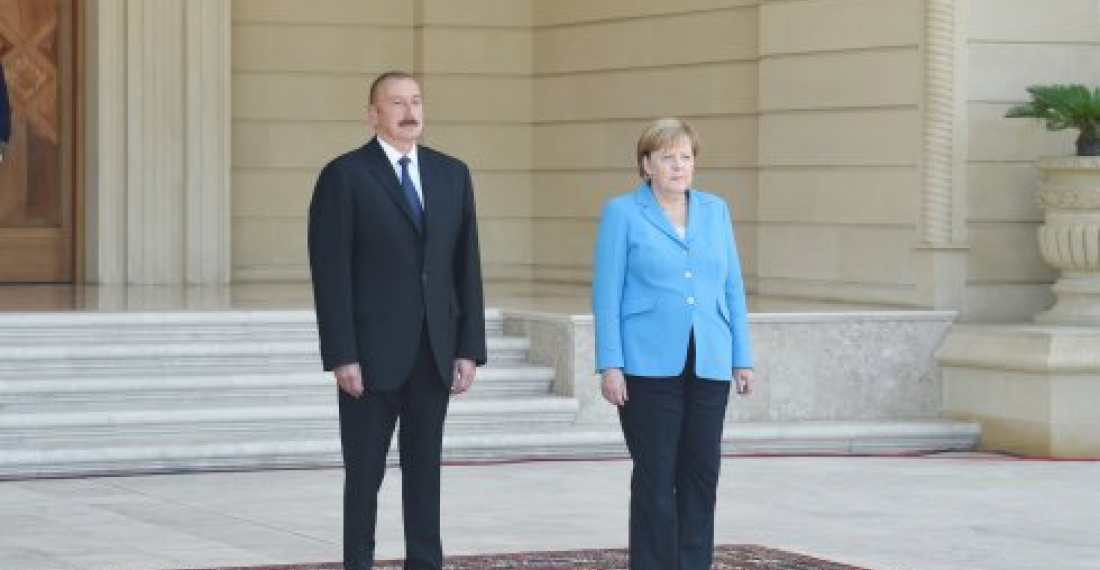Speaking in Baku, on the last leg of her tour of the South Caucasus, German Chancellor Angela Merkel on Saturday (25 August) highlighted the importance of Azerbaijan for Europe's energy security.
During the visit, the German Chancellor held talks with Azerbaijani president Ilham Aliyev, and addressed a German-Azerbaijani business forum.
In Baku, Chancellor Merkel once more spoke about the Nagorno-Karabakh conflict "Berlin could help mediate between Azerbaijan and neighboring Armenia to resolve a long-running territorial dispute over Nagorno-Karabakh", the German broadcaster Deutsche Welle reported.
"Germany wants to help find peaceful solutions," the chancellor told journalists in the Azerbaijani capital, Baku, adding that the conflict was a major burden on the region.
Merkel also called for stronger economic cooperation with Azerbaijan. German media reported that issues discussed in the private talks between Merkel and Aliyev included the domestic human rights situation, the possibility of expanding energy markets to avoid dependency on Russian gas, and efforts to end the Nagorno-Karabakh conflict.
In the afternoon, the German Chancellor left Baku and returned back to Berlin.
source: commonspace.eu with dw.de and agencies
photo: An official welcomning ceremony was held at the presidential residence in Baku for the visiting German Chancellor Angela Merkel. (picture courtesy of the press service of the president of Azerbaijan)






